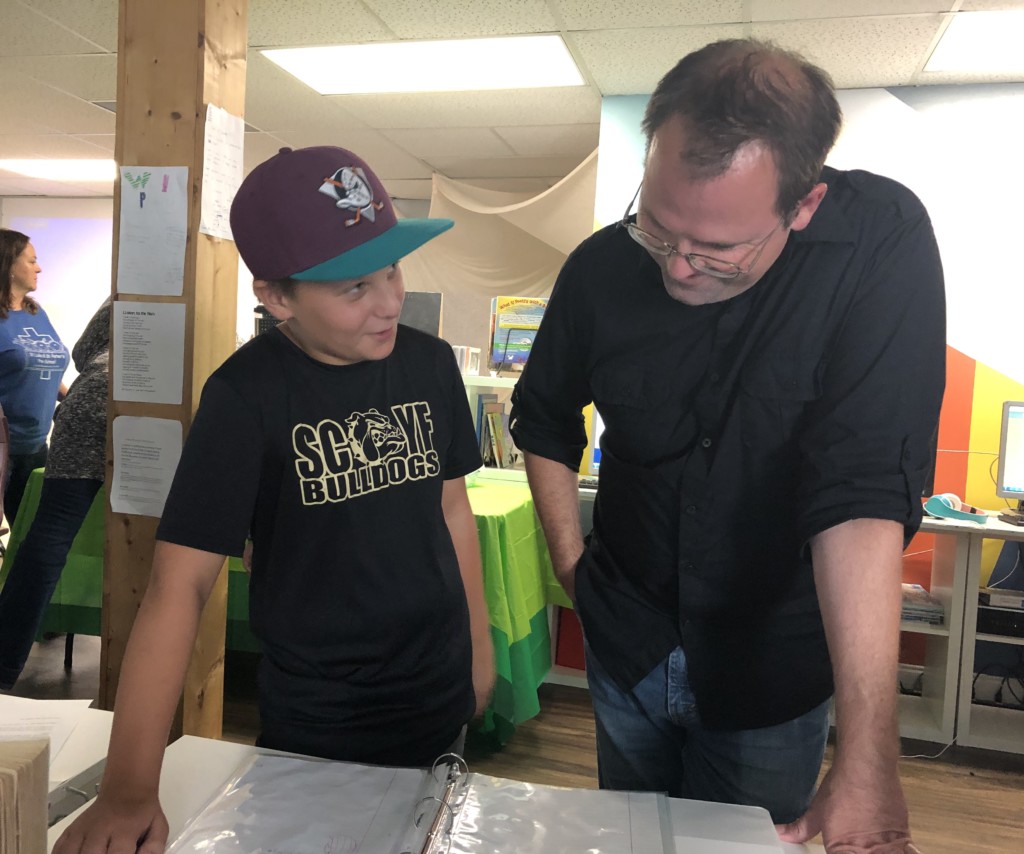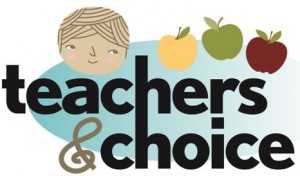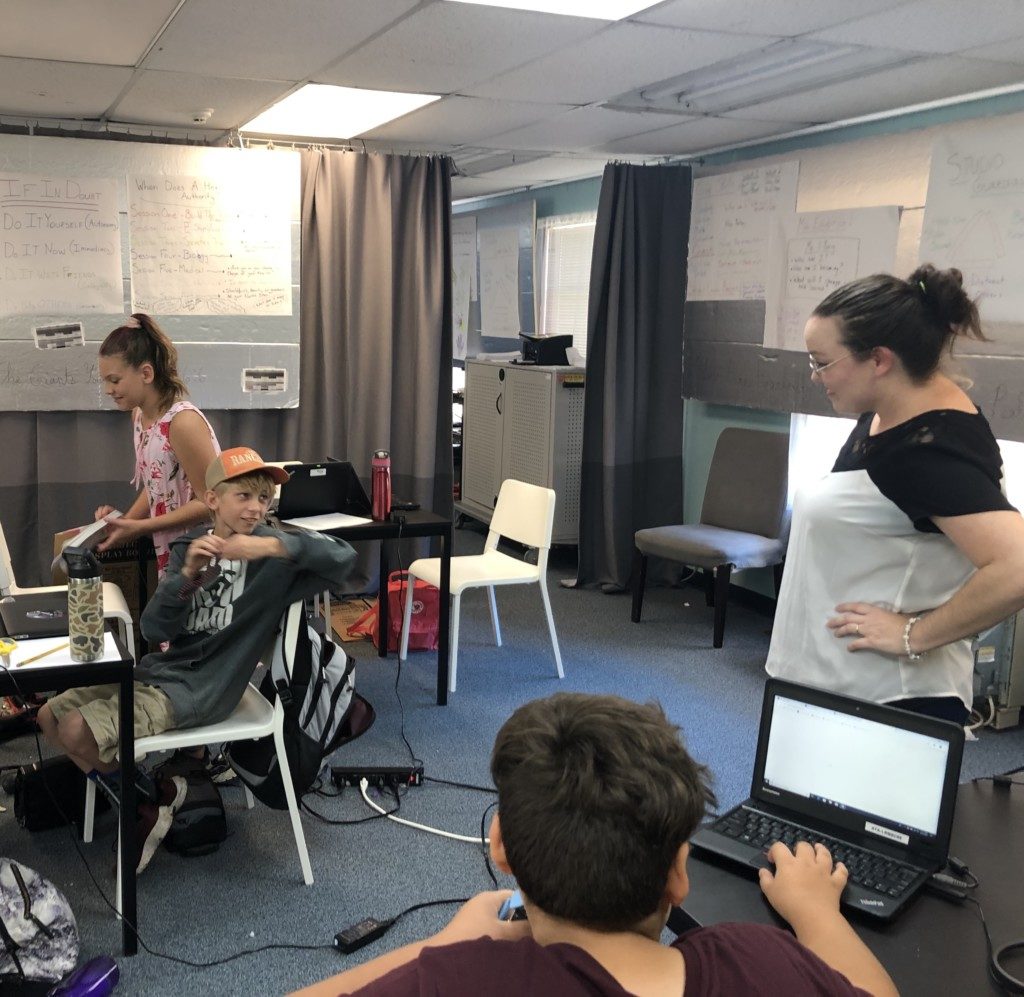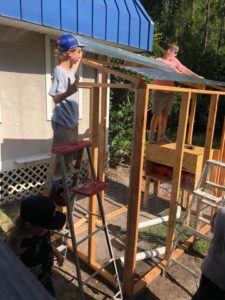
ST. CLOUD, Fla. – In the ever-expanding universe of public education, Phil and Jennifer Henderson are, by their own design, little fish in a big pond. A few years ago, the couple left teaching in public schools here on the edge of metro Orlando to start their own little micro-school.
 Arts Thereafter is a faith-based, arts-rich, economically diverse, “learner-driven,” K-12 school with 60 students. (Try and label that! ????) It reflects what the Hendersons think is the right way to do teaching and learning, spurred in part by a fear to fail that gripped one of their own children. (Click on the audio below to hear their account.)
Arts Thereafter is a faith-based, arts-rich, economically diverse, “learner-driven,” K-12 school with 60 students. (Try and label that! ????) It reflects what the Hendersons think is the right way to do teaching and learning, spurred in part by a fear to fail that gripped one of their own children. (Click on the audio below to hear their account.)
Lawyers, ranchers and blueberry farmers like their approach. Nurses, mechanics and sheriff’s deputies do too. Many of them wouldn’t have been able to afford Arts Thereafter (as modestly priced as it is) without Florida’s menu of choice scholarships. The Hendersons wouldn’t have been able to sustain their school without them. But shared interest, and the freedom to try something new, is giving life to the couple’s vision. And who knows? It might even give educators, in Florida and beyond, another example of what’s possible under a new definition of public education.
“If you’re a fish that’s been in a fish tank for a long time, do you realize there’s a whole ocean out there?” said Henderson, 39, who taught science in district and charter middle schools. “I’m not saying our way is for everybody. But there’s a whole ocean out there of different ways of doing things.”

Arts Thereafter is tucked into two modular buildings behind a modest church that pines hide from the highway. Its humble exterior belies that it’s part of the Acton Academy, an acclaimed micro-school network. From its start in Austin, Texas a decade ago, Acton has grown to 160 affiliates. Phil Henderson said when he stumbled on the network’s existence, “I was ready to give my life to it. I said if this is the future of education, count me in.”
There are no tests, no grades, no grade levels in the traditional sense. There are “guides” instead of teachers. Students are given wide latitude to become independent thinkers, to acquire useful, real-world knowledge by following their curiosity. They do projects and group work. Their peers hold them accountable.
Does it work? Let’s veer from fish to chicken.
Earlier this year, the kids in the middle school “studio” were challenged by their guide to build a structure. They initially proposed a playhouse (for the younger students) but … too expensive. Somebody suggested a chicken coop. They could raise chickens, sell the eggs, and learn tons of science along the way.

Working in teams, some of them acquired eggs from a local farmer and raised the chicks. Others contacted local builders to defray costs through donated materials. Others researched local ordinances to make sure it was legal to keep chickens. All of them worked together on the design, which had to be revised several times to meet financial realities. (The original called for a three-story “chicken mansion.”) All of them worked together to build it.
Last week, the students sold five roosters they raised for $10 each. The student designated to be the seller was sure he could get $20 each, but froze when it was time to haggle with the buyer. His peers razzed him a bit, but both he and they could laugh about it.
Failing was part of the process.
“This wasn’t take a test and regurgitate it back on paper,” Jennifer Henderson said. “This was planning, designing, re-designing, fixing, failing and trying again. We let them fail, early and often, so they know how to bounce back and do better next time.”
Half the students at Arts Thereafter use state choice scholarships, including 26 who use the Florida Tax Credit Scholarship for lower-income students. (The scholarship is administered by nonprofits such as Step Up For Students, which hosts this blog.)
Katherine Day’s son Christian is one of them. Day, a mother of five, is a paraprofessional at a district school. Her husband is a branch manager for a rental car company. Christian, 13, was a bit of an outcast in public school. His peers picked on him because he liked to talk physics and the military, and most of his teachers, Day said, didn’t have the time or inclination to help. Christian woke up every morning dreading school.
In the beginning, it was rough at Arts Thereafter too. But the Hendersons kept in constant contact with Day. In a micro-school with 60 kids, they could.
Two years in, Christian is happy again, and fully engaged in his school. He’s made friends. He knows everybody is on his side. “Every issue, they helped me through it,” Day said. “It was like family.”
It remains to be seen how much micro-schools can chip away at the big challenges facing public education. But in a choice-rich state like Florida, it’s not hard to find more of them (like this one and this one) emerging in the shadows of school districts. One by one, they’re giving parents and teachers a glimpse into the endless educational variety that, with more choice, can be.
“These micro-schools are all answers to different questions,” Jennifer Henderson said. “Everybody’s different. Everybody has their own thought about how education should be, how their children should learn. We’re only an answer for some. We’re not an answer for all.”
But with more choice giving more educators more power, more answers might add up. The little fish at the Arts Thereafter micro-school checked their fear to fail.
They found out the water’s just fine.


